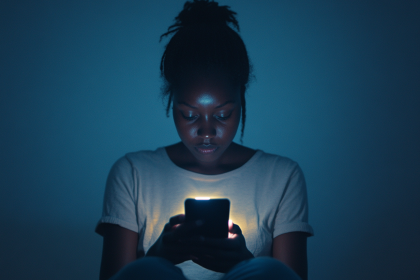The smartphone era has transformed daily life, offering unprecedented convenience and connectivity. However, these powerful devices harbor subtle addictive elements that can significantly impact mental health and personal well-being. Recent studies indicate that Americans check their phones an average of 344 times per day, roughly once every four minutes during waking hours, marking a concerning trend in digital dependency.
The social media trap
The most pervasive addiction lurking in modern phones stems from social media platforms. These applications leverage sophisticated psychological triggers to create compelling feedback loops in users’ brains, leading to compulsive checking behaviors and emotional dependency.
Impact of social media addiction:
- Decreased attention span and cognitive function
- Heightened anxiety levels and social comparison
- Reduced self-esteem and body image issues
- Disrupted sleep patterns and insomnia
- Impaired social relationships and communication
- Decreased productivity and academic performance
- Increased risk of depression and isolation
Mental health professionals report that excessive social media use often mirrors the pattern of other behavioral addictions, complete with withdrawal symptoms when access is restricted. Users frequently describe feeling anxious, irritable, and disconnected when unable to check their social media accounts.
Entertainment overload
Streaming services and mobile games have revolutionized entertainment accessibility, creating new challenges for maintaining healthy boundaries. The average user now spends over three hours daily consuming entertainment content on their phone, often at the expense of more productive or meaningful activities.
Problematic entertainment patterns include:
- Late-night binge watching affecting sleep cycles
- Compulsive game playing leading to time mismanagement
- Excessive content consumption reducing real-world engagement
- Schedule disruption impacting work and studies
- Productivity interference in daily tasks
- Relationship strain due to divided attention
- Sleep deprivation affecting physical health
- Escapist behavior avoiding real-life challenges
The entertainment industry continues to develop increasingly sophisticated methods to capture and maintain user attention, making it harder to break free from these addictive patterns.
Digital marketplace addiction
Mobile shopping platforms utilize sophisticated algorithms and targeted advertising to encourage impulsive purchasing behaviors. The convenience of one-click buying removes traditional barriers to spending, while personalized recommendations create a seemingly endless shopping cycle.
Shopping addiction indicators:
- Frequent impulse purchases without consideration
- Budget management difficulties and overspending
- Shopping as emotional relief or stress management
- Hidden purchases from family members
- Accumulating unused items and digital clutter
- Financial strain and credit card debt
- Compulsive browsing during work hours
- Ritualistic checking of shopping apps
- Anxiety when unable to make purchases
Content consumption disorders
The endless scroll of content feeds creates a state of constant stimulation, leading to addictive consumption patterns. Users often find themselves unable to disconnect from the steady stream of information, affecting their ability to process and reflect on information meaningfully.
Harmful content habits include:
- Compulsive doom scrolling and negative news fixation
- Conspiracy theory absorption and misinformation spread
- Excessive news consumption leading to anxiety
- Reality distortion and warped worldview
- Information overload affecting decision-making
- Attention fragmentation and reduced focus
- Critical thinking erosion due to quick consumption
- Time loss in content rabbit holes
- Decreased real-world engagement
Gaming dependency
Mobile gaming industry practices increasingly incorporate addictive design elements. These games often employ variable reward schedules, social pressure, and micro-transactions to maintain user engagement and generate revenue.
Warning signs of gaming addiction:
- Lost time awareness during gaming sessions
- Neglected responsibilities and priorities
- Increasing playtime and tolerance building
- Financial implications from in-app purchases
- Withdrawal symptoms when unable to play
- Relationship conflicts due to gaming priority
- Sleep disruption and irregular patterns
- Physical health deterioration
- Academic or work performance decline
Communication overload
The expectation of constant availability creates significant psychological pressure. Multiple messaging platforms compete for attention, leading to communication fatigue and decreased quality of interactions.
Impact on daily life:
- Increased stress levels from constant notifications
- Reduced focus and attention span
- Compromised productivity in tasks
- Relationship strain from divided attention
- Decision fatigue from multiple channels
- Privacy invasion and boundary issues
- Work-life imbalance and burnout
- Anxiety about missing messages
- Decreased face-to-face communication skills
Digital identity obsession
The pressure to maintain an online presence can lead to unhealthy preoccupation with digital self-presentation. Photo editing and filtering applications encourage unrealistic beauty standards and constant comparison.
Psychological effects include:
- Body image issues and dysmorphia
- Self-esteem problems and insecurity
- Reality disconnection and fantasy life
- Social comparison anxiety and depression
- Authenticity loss in self-presentation
- Identity confusion and fragmentation
- Validation dependency and approval seeking
- Perfectionism and unrealistic standards
- Increased social anxiety and withdrawal
Breaking free from phone addiction
Developing healthier relationships with mobile devices requires conscious effort and practical strategies. Mental health professionals recommend several approaches to regaining control and establishing balanced technology use.
Essential steps include:
- Setting strict usage boundaries and time limits
- Implementing app restrictions and controls
- Creating phone-free zones in living spaces
- Establishing offline hours for recovery
- Practicing mindful usage and awareness
- Building real-world connections and activities
- Monitoring screen time and patterns
- Developing alternative coping mechanisms
- Engaging in physical activity and nature
The path to healthier phone usage begins with awareness and continues through conscious action. Understanding these hidden vices represents the first step toward reclaiming control over digital habits and fostering more balanced technology use in our increasingly connected world.
This story was created using AI technology.















